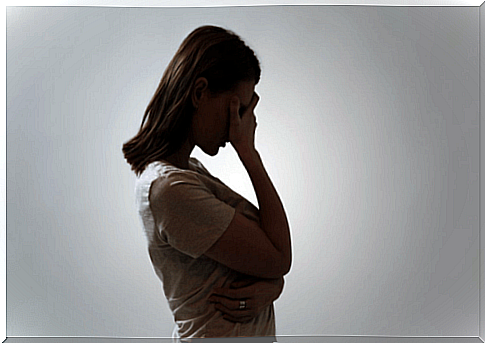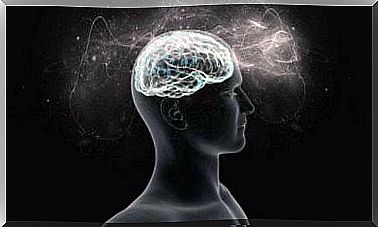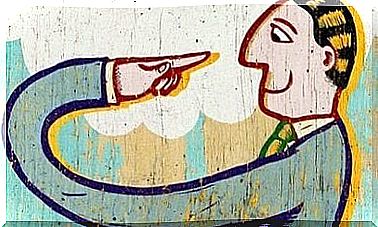The Psychological Burden Of Guilt

Becoming aware that you have hurt someone is a step in the right direction. But it also means that you carry the psychological burden of guilt. And you may not find it easy to escape from it. You can solve this, but you will not do it by trying to avoid or apologize for the debt.
Only people with severe psychiatric disorders do not feel guilty. These people have no conscience. So when they cause harm, they think it is normal or even necessary. However, a mentally healthy person feels guilty. In other words, if you feel guilty, this indicates that you are mentally healthy.
However, there are different types of debt, and not all are affected in the same way. For example, there are mistakes that can make you feel a little uncomfortable but still sure that you have not done any real harm. On the other hand, there are times when you have done something that can significantly affect you. And then you feel mentally stressed.

The psychological burden of guilt
Everyone has hurt someone else at some point, even if it was not meant to be. No one has so much self-control that he has never done anything wrong. It may depend on your attitude, your actions or your way of treating others. You are not born emotionally mature, and you usually learn to be that by your mistakes.
Feeling guilty is not so much related to what you have done. It depends more on your perspective on the matter. Some people may feel very sorry for a small violation, while others can easily deal with big mistakes.
Debt also affects the outcome of the situation, your relationship with the person you have hurt and the current circumstances. If the situation had very serious consequences that continued over time, the psychological burden can be very heavy. Also, if the person you are hurting is someone you have feelings for, you may have a harder time dealing with the debt. But you may not always be able to repair the damage. This may be because the consequences of your actions cannot be reversed or the person is no longer in your life.
Types of debt
Hurting someone can lead to two different types of guilt. First, normal debt. This is characterized by the fact that you understand what damage you have done, its effect and what moral rules you have broken through your actions. For example, if you made a hurtful comment and then regretted it when you realized it was not fair to the other person.
The second type is pathological guilt, which is not so obvious. Sometimes you are not aware of the damage you have done. However, it weighs on your subconscious. This can lead to self-sabotage or shame. You may also feel mistrust and fear. As a result, guilt manifests itself as a feeling that you will be punished, but you do not know exactly why or how.
Pathological guilt can become an insurmountable obstacle in your life and hang over everything you do. The paradox is that it can end up with you unconsciously longing for punishment and still administering it yourself without realizing it.

How to recover from the psychological burden of guilt
Forgiving oneself is a fundamental process for good mental health. However, this is not as simple as just saying “I forgive myself”. It is a process that requires you to acknowledge the damage you have done and its consequences.
You can not just let it go; you need to investigate the circumstances surrounding how and why it happened. Why did you not act right and proper? What stopped you? What were the surrounding psychological circumstances? Why was it impossible for you to act differently?
The behavior of hurting others is often related to immaturity, weaknesses, or misconceptions. It can also be linked to impulsive behavior due to lack of self-control or disputes that cannot be handled adequately at the moment. It is always important to try to be a good person and remember that you are simply human.
After understanding comes forgiveness. Then fix what can be fixed by apologizing, explaining your mistake and promising that you will not do it again in the future.









